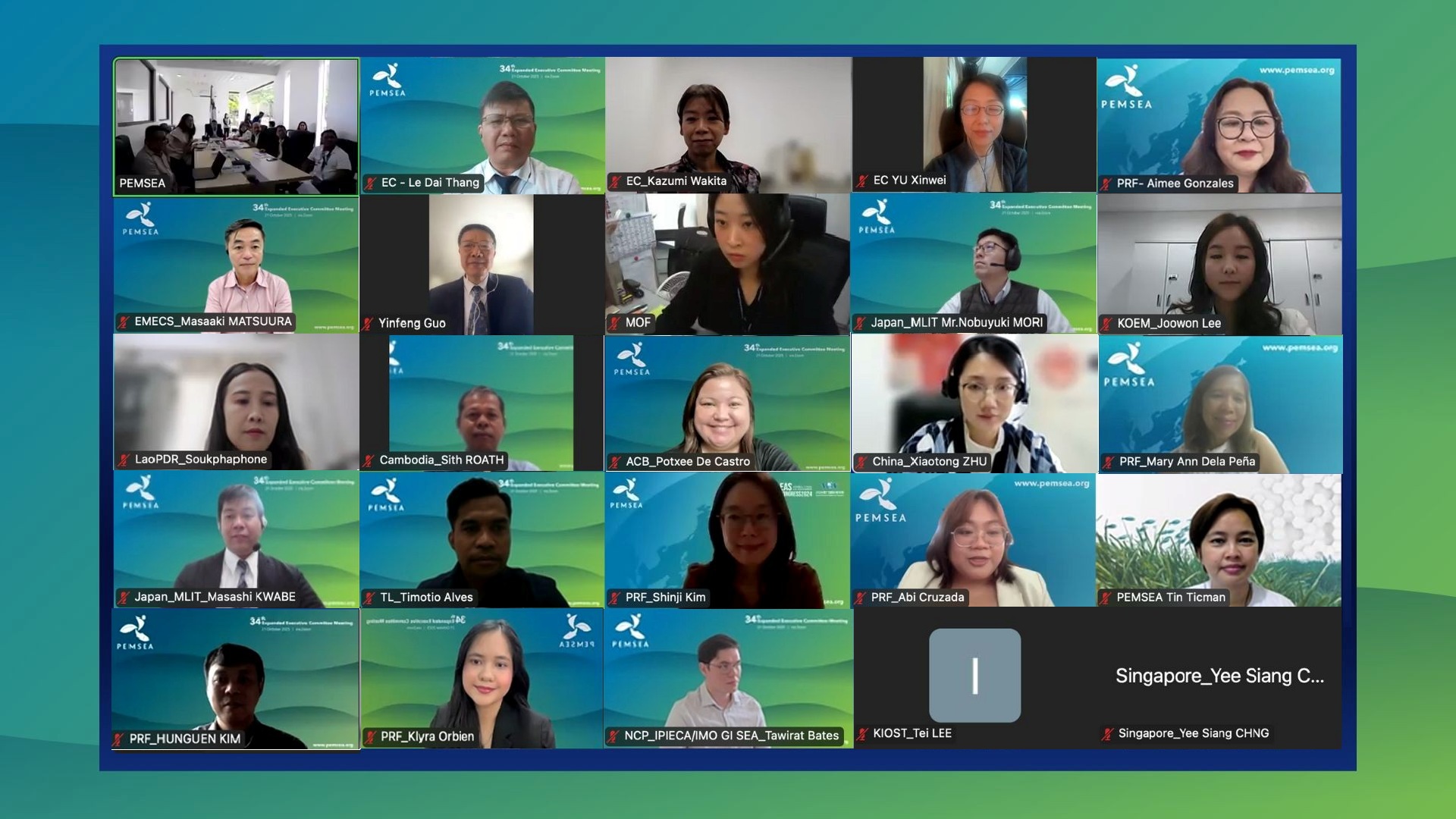IRBM Project Hosts ASEAN Workshop to Introduce REWEFe Nexus Toolkit
Friday, 13 June 2025
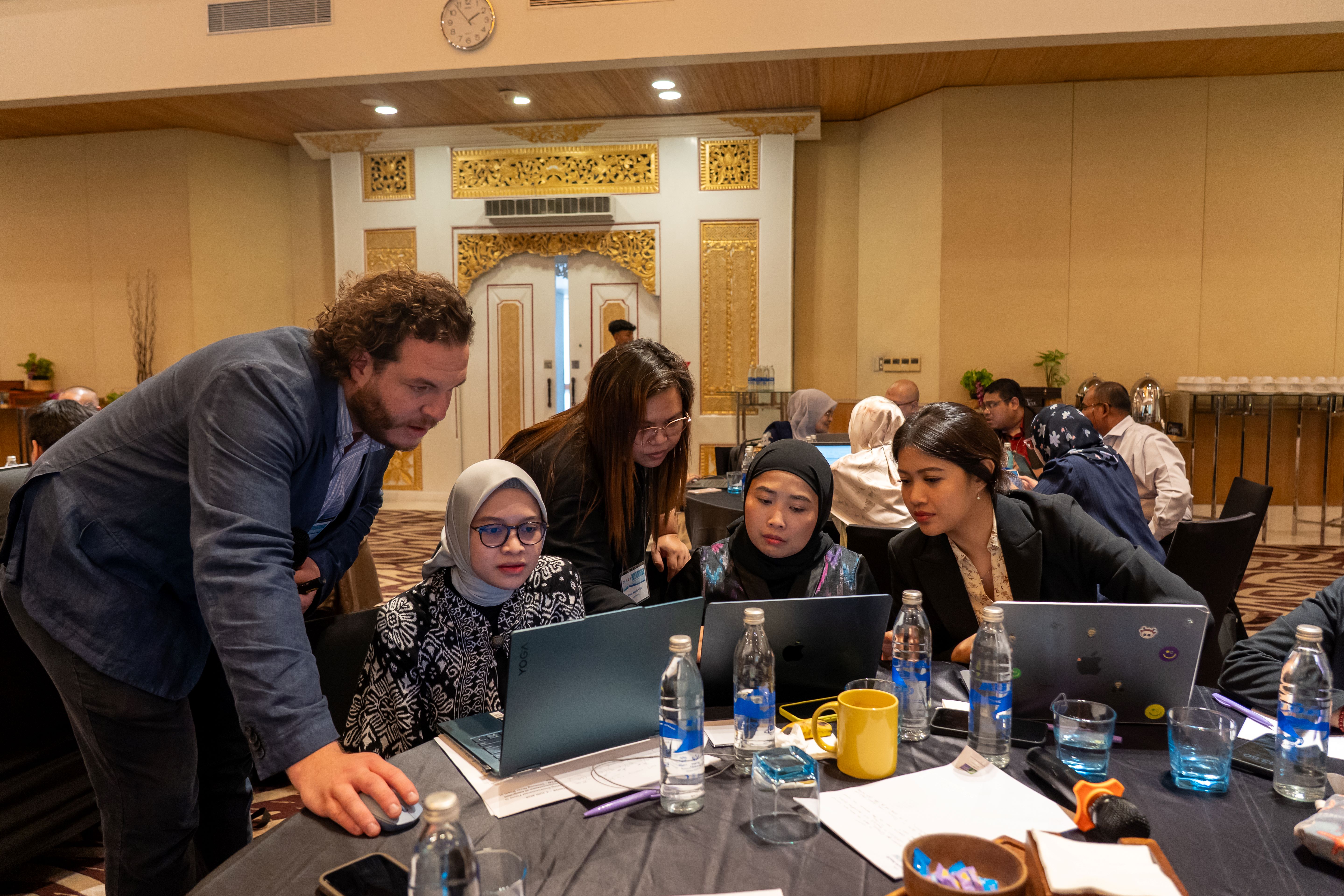
Mr. Brecht D’Haeyer of FutureWater with national and local government representatives from Indonesia and the Philippines during the workshop.
Kuta, Bali - The GEF/UNDP/ASEAN Integrated River Basin Management (IRBM) Project convened a regional orientation workshop on the development of the Rapid Evaluation of the Water-Energy-Food-Ecosystems (REWEFe) Nexus Toolkit for river basins in Southeast Asia on 3 June 2025. The event brought together members of the ASEAN Working Group on Water Resources Management (AWGWRM) – comprising of National Focal Agencies from Cambodia, Indonesia, Lao PDR, Malaysia, Philippines, Thailand and Viet Nam – as well as representatives from the ASEAN Secretariat, the United Nations Development Programme (UNDP), national implementing partners, local governments, university partners, and national coordinators of the IRBM Project.
PEMSEA Resource Facility and the Ministry of Environment Indonesia organized the event and served as Secretariat. The whole-day workshop introduced and demonstrated the application of the REWEFe Toolkit in selected river basins of the IRBM Project. It also provided an opportunity for participants to explore the toolkit’s potential for broader scaling across other river basins in the ASEAN region.
In his opening message, Dr. Odoumsak Philavong, Chair of the AWGWRM, emphasized the importance of the workshop:
"This initiative aims to provide a better understanding of conflicts in water resources management that occur in the priority river basins and their adjacent coastal areas as a consequence of existing and future water uses, and the implications on the applicable WEFE Security Nexus.”
He added:
"A better understanding of the linkages and interdependence of these four sectors – water, energy, food security, and ecosystem health – is of particular importance in Southeast Asia since water security strongly impacts the region’s economy."
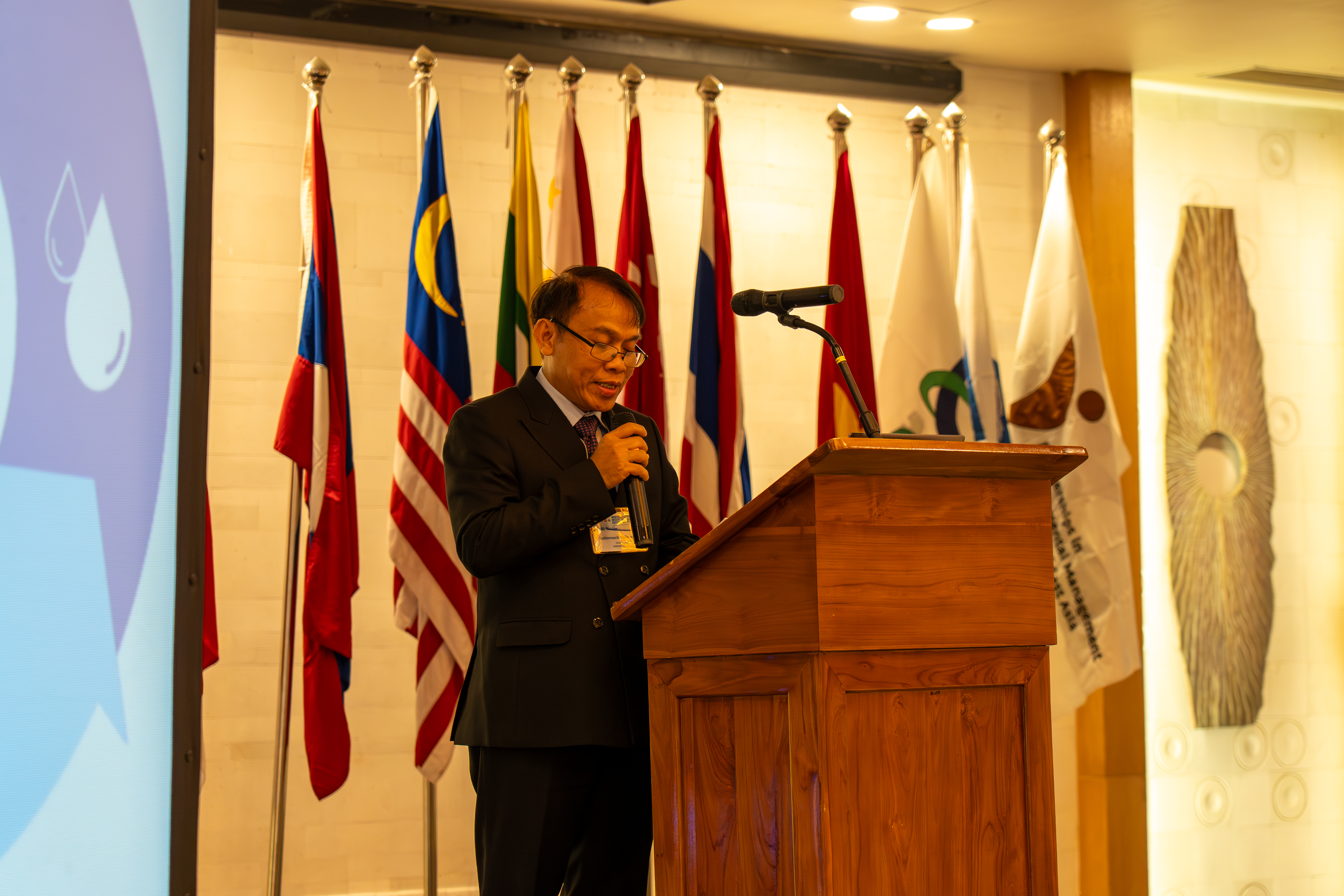
Dr. Odoumsak Philavong, Chair of the AWGWRM, provided the opening message.
Agriculture and food security in Southeast Asia are closely tied to water availability. According to a 2021 report by the Food and Agriculture Organization, over 90% of total water use in some ASEAN countries is allocated to agriculture, highlighting the critical link between water resources and food security.
In addition, Southeast Asia is one of the most vulnerable regions to climate change. Extreme weather events are projected to continue exacerbating floods and droughts, further decreasing freshwater availability in the region.
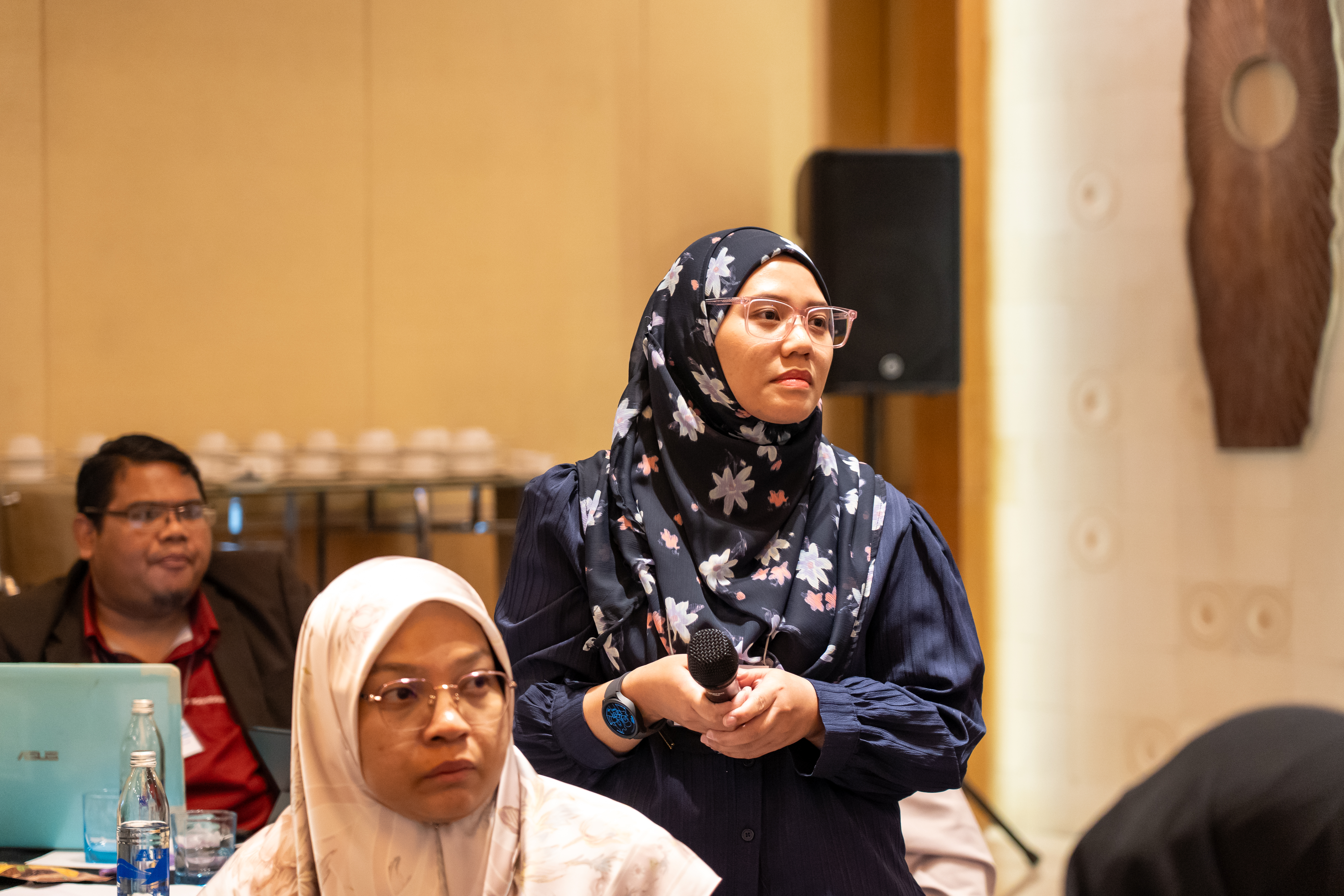 | 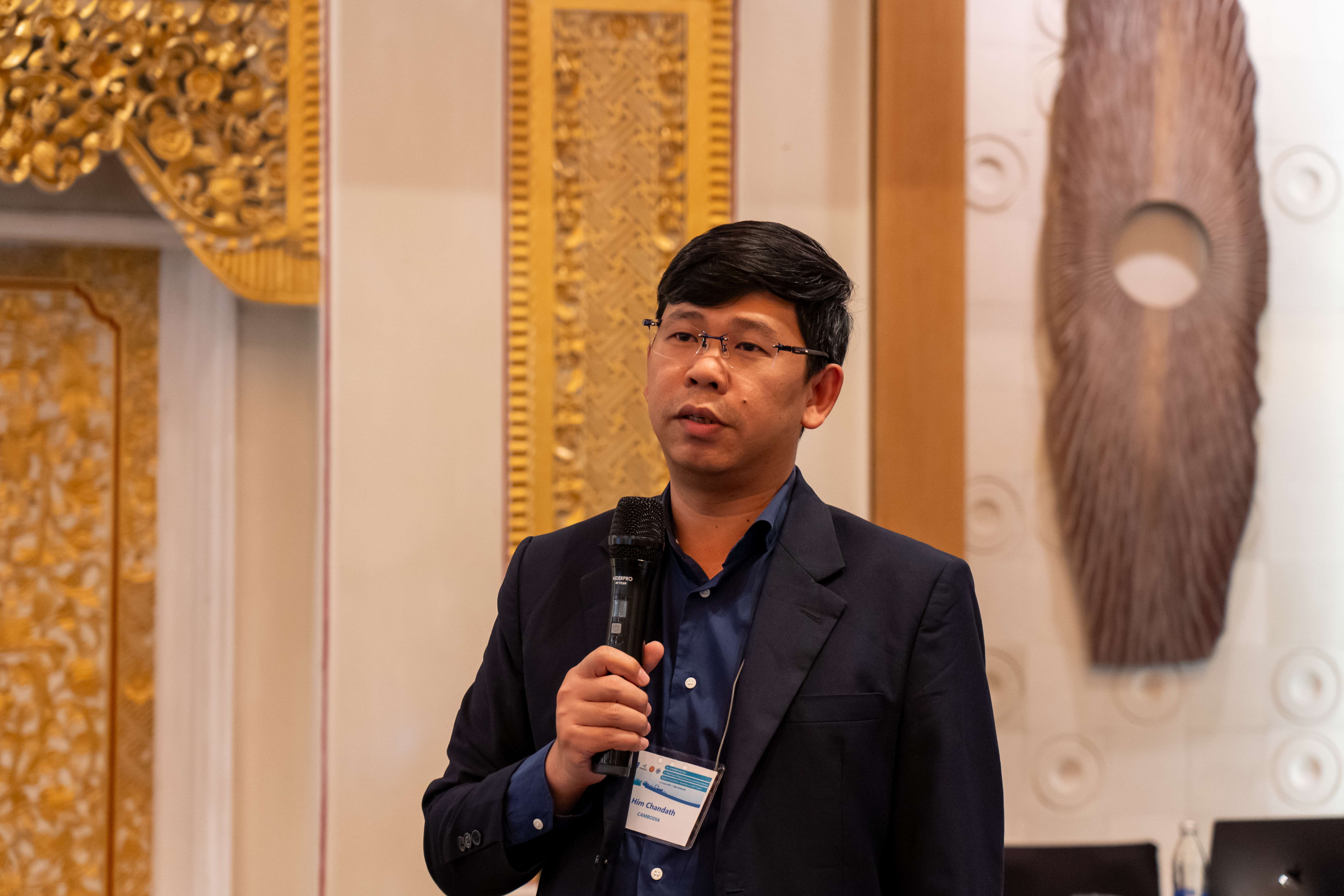 | 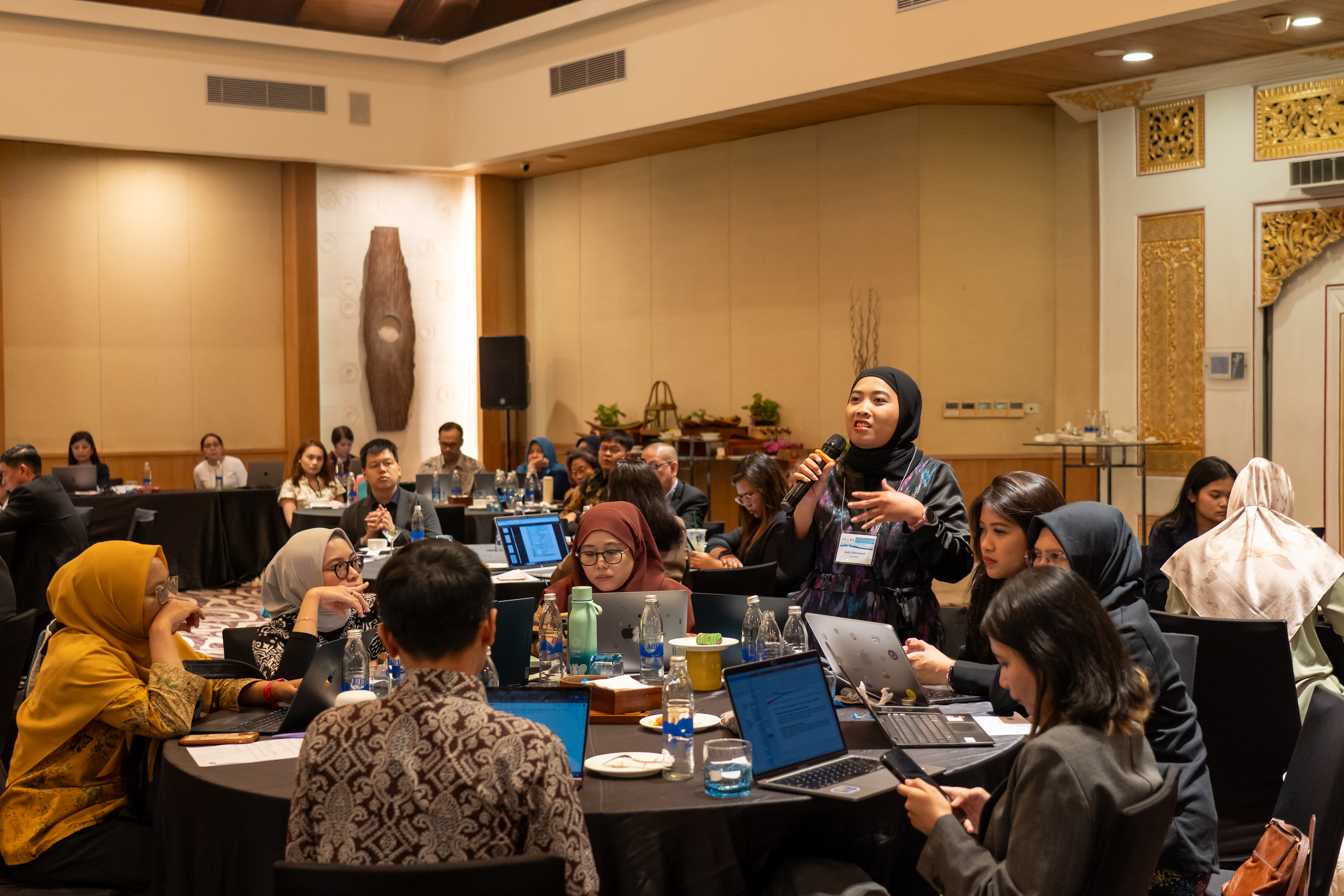 |
(Left-Right) Representatives from Malaysia, Cambodia, and Indonesia during the open-forum.
Applying the REWEFe Toolkit for Integrated River Basin Management
The workshop gathered 57 participants – 51% of whom were women – and was facilitated by Mr. Brecht D’Haeyer, a hydrologist from FutureWater. He demonstrated the practical application of the REWEFe Nexus Toolkit using the Pasac Guagua Watershed as an example, explaining how increased agricultural production necessitates greater land and water use, which in turn affects energy production and freshwater availability for domestic, industrial, and environmental needs.
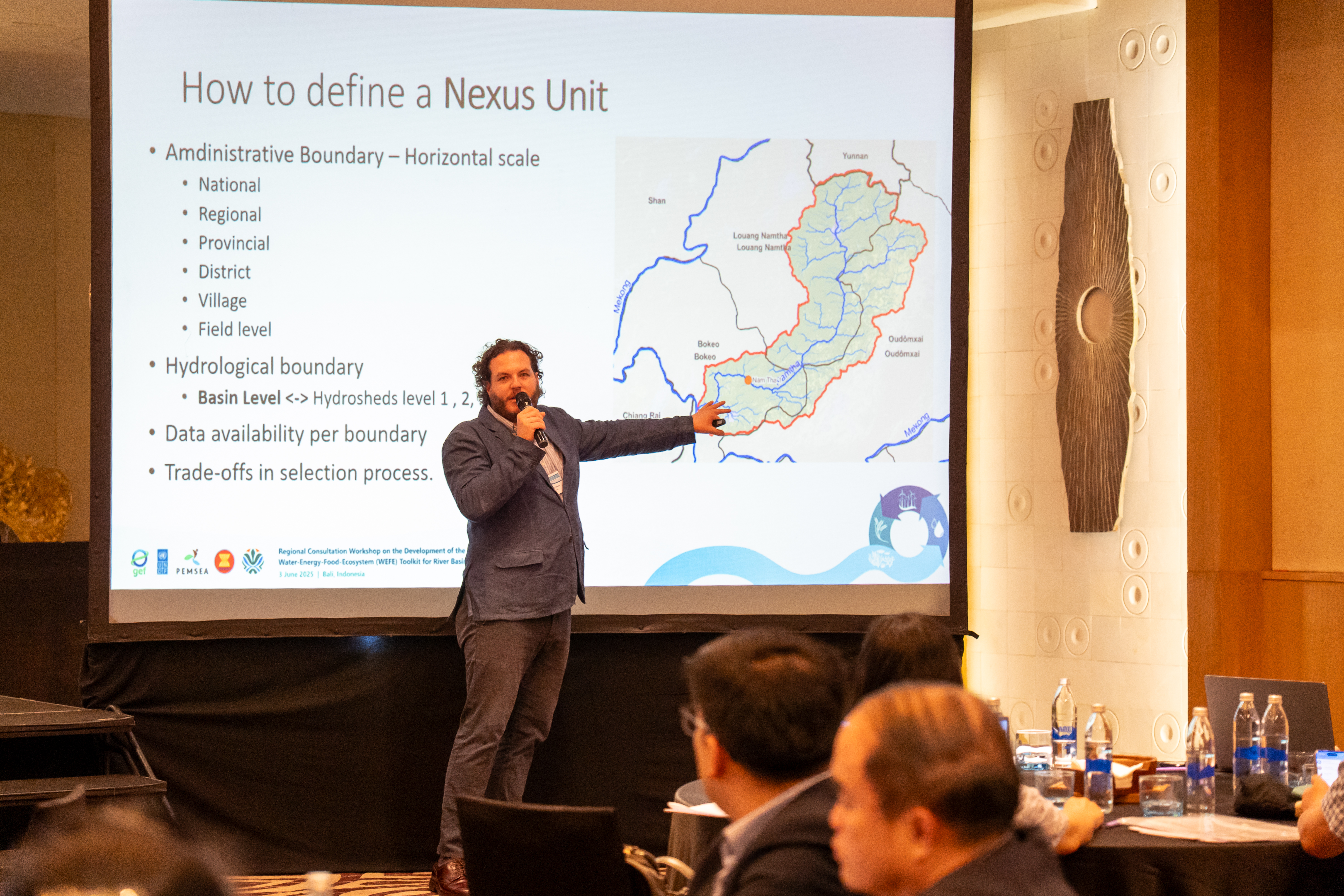
Mr. Brecht D’Haeyer of FutureWater facilitated the workshop.
The REWEFe Nexus Toolkit is designed to help policymakers in ASEAN Member States balance competing resource demands and improve climate resilience through informed and evidence-based decisions. Findings from its application will be incorporated into the State of River Basin baseline reports that are being prepared for the seven river basins covered by the IRBM Project.
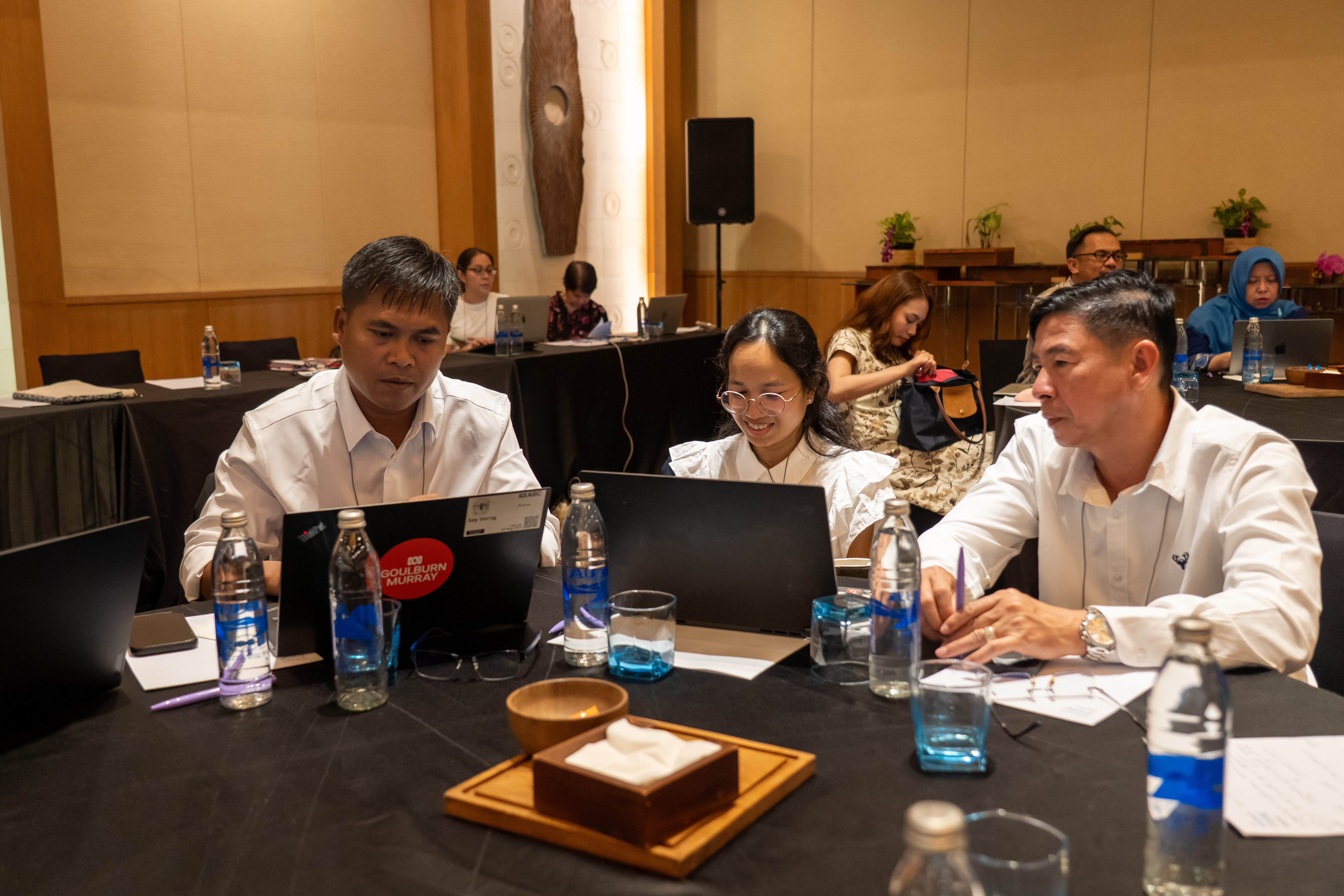 | 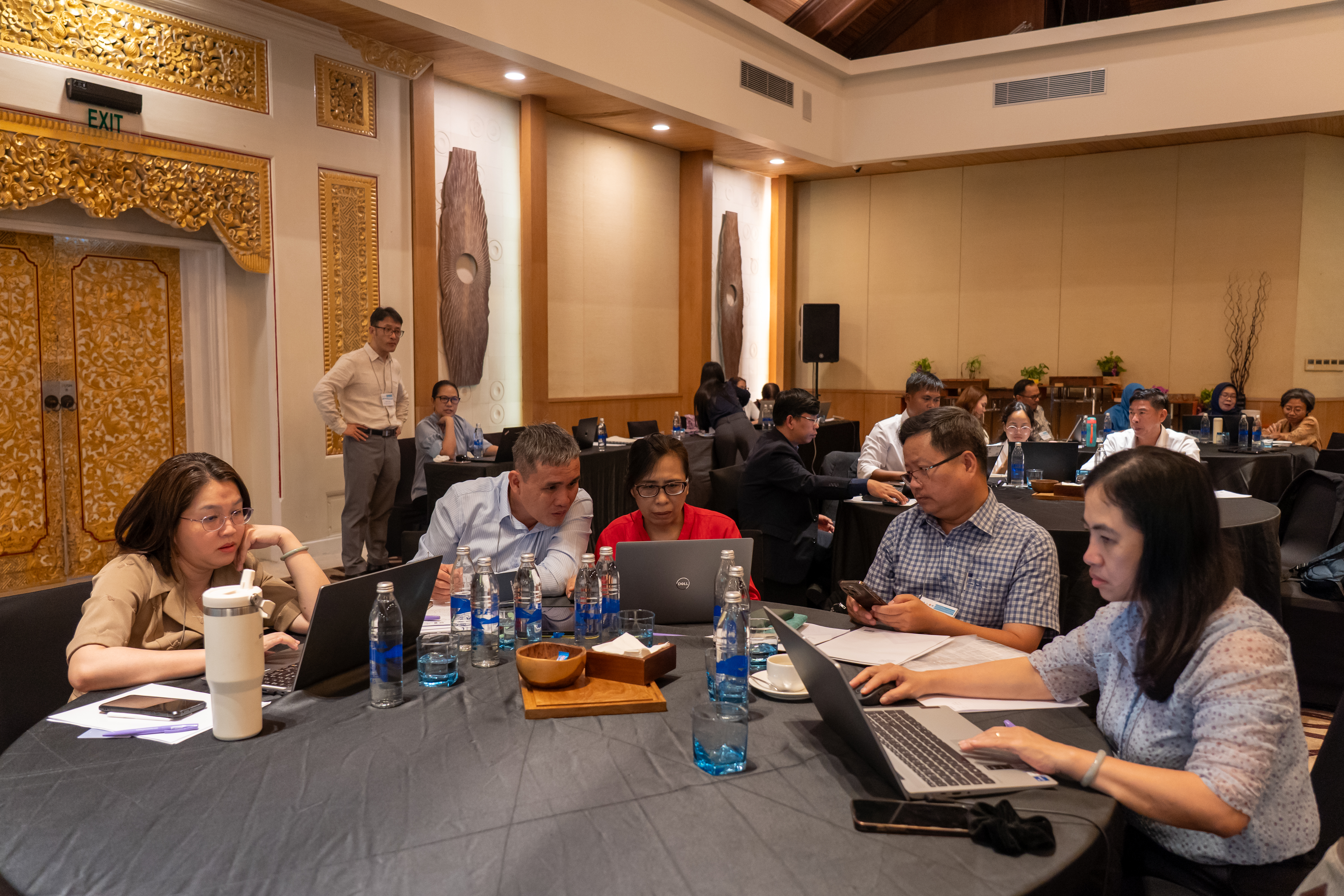 |
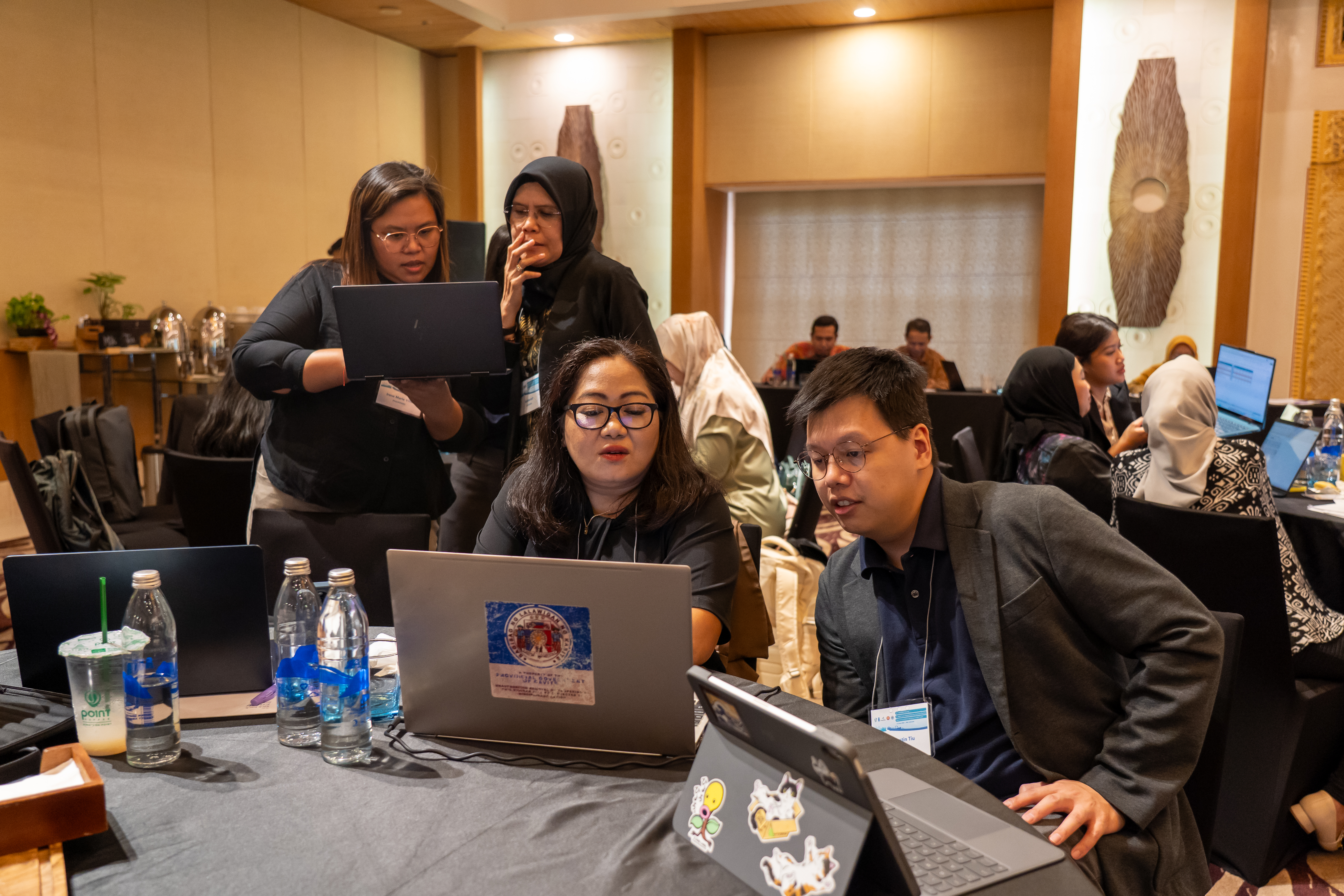 | 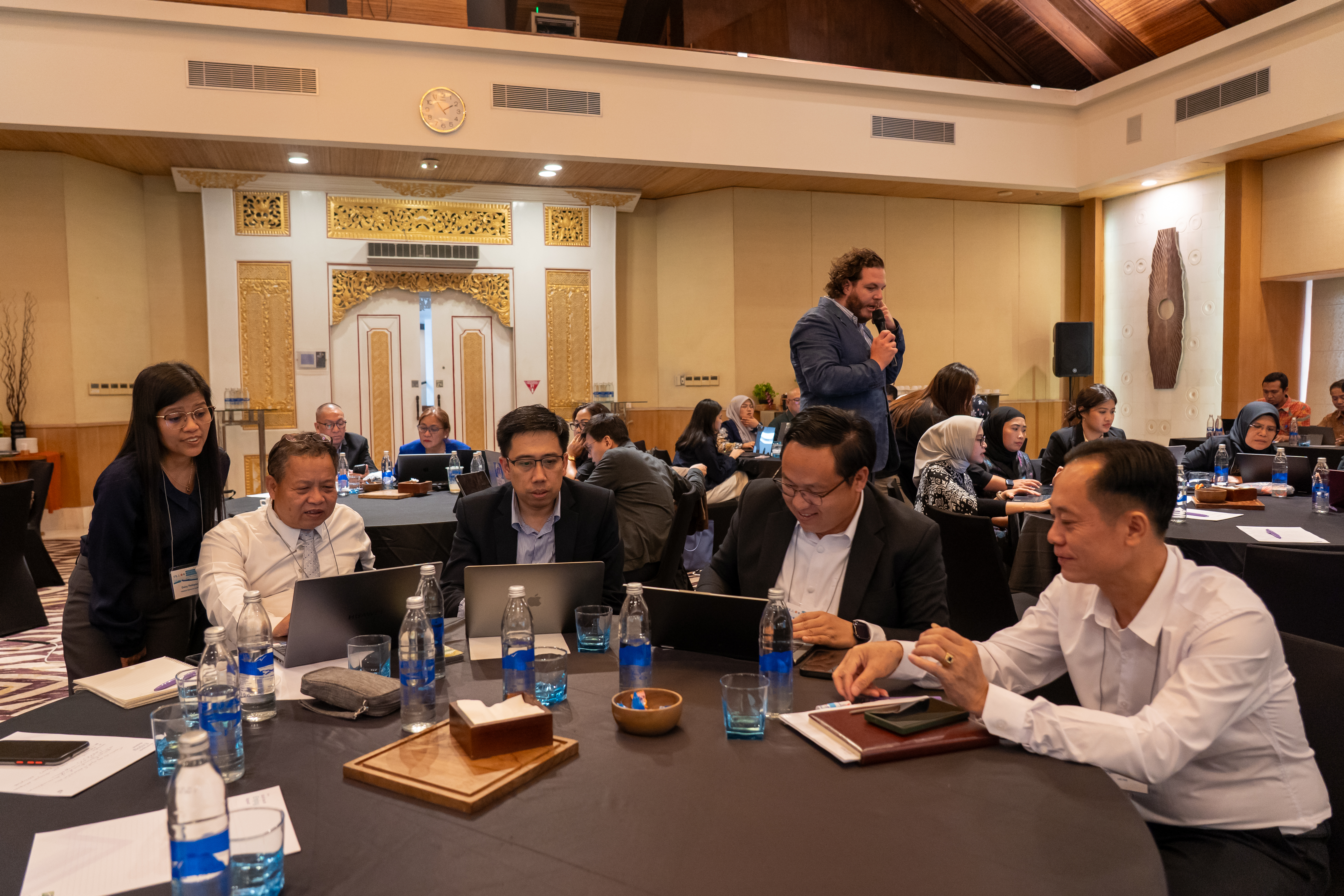 |
(Top Left - Bottom Right): Participants from Cambodia, Viet Nam, Philippines, and Lao PDR during the hands-on application of the toolkit.
Country Perspectives and Next Steps
Cambodian participants acknowledged the toolkit's usefulness in facilitating the identification of potential policy interventions and evaluating their impacts. However, they emphasized the importance of accurate datasets to ensure the reliability of results.
Lao PDR representatives also recognized the value of the toolkit but expressed concern about data limitations in basins beyond Nam Tha River. They suggested configuring the required data inputs based on the river basin context and conducting training to support toolkit application.
While this was an orientation workshop, participants shared recommendations to refine the toolkit for better alignment with the region’s specific needs. Targeted basin-level training will be pursued following the refinement of the toolkit.
This workshop and the REWEFe Nexus Toolkit collectively advance the IRBM Project’s broader mission: reducing pollution, sustaining vital freshwater flows, and enhancing climate resilience in seven priority river basins across the region.
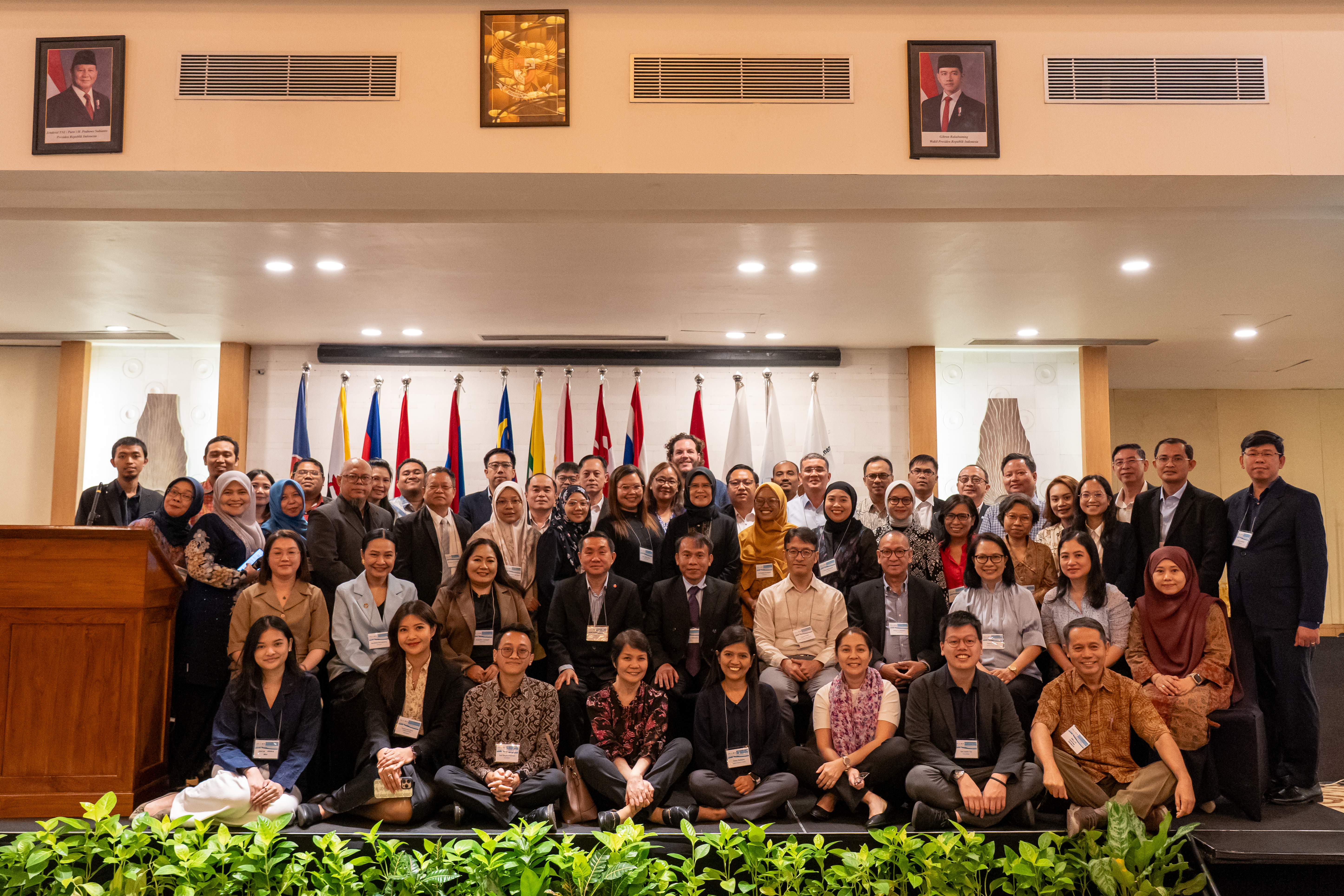
Participants of the regional consultation workshop.
About the Project
Supported by the Global Environment Facility, the Integrated River Basin Management (IRBM) Project aims to set-up functional management mechanisms in priority river basins of six ASEAN countries to reduce pollution and sustain freshwater environmental flows as well as adapt to climate change vulnerabilities. The Project is being implemented by the United Nations Development Programme, and executed by Partnerships in Environmental Management for the Seas of Seas Asia, in collaboration with ASEAN.
Footnotes:
All photos by Orange Omengan/PEMSEA




